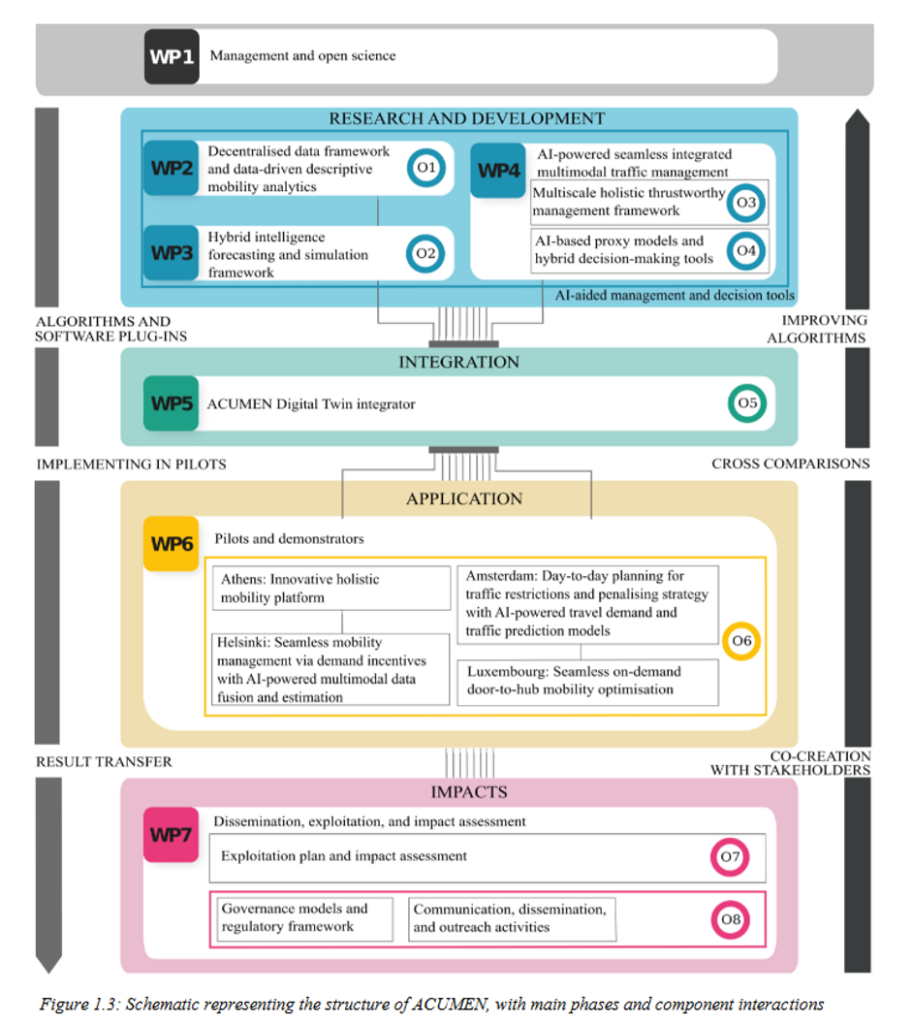Methodology
The methodology of the ACUMEN project revolves around the development of a modular, multi-layered Digital Twin, representing a digitized version of the urban mobility ecosystem. The Digital Twin encompasses various layers, including the Physical infrastructure, Mobility services, Human activities, and Digital infrastructure, with the ultimate goal of enabling decision-making for mobility through novel solutions and tools.
Phase I involves Research and Development, where academic and research partners work on developing AI-aided management and decision tools using data science and traffic science methods. This includes creating a decentralized framework with security and privacy considerations, processing data from multiple sources, and employing ML/AI techniques for extreme event detection and characterisation. Additionally, the phase focuses on modelling and prediction methods for demand and traffic forecasting, with a particular emphasis on fairness, trust, and resilience.
Phase II, the Integration Phase, involves the integration of all developments from Phase I into a novel ACUMEN platform, designed with functional/non-functional requirements in mind. Application programming interfaces (APIs) connect the integrated ACUMEN services to the Digital Twin platform. The platform is then tested and demonstrated in real-life and virtual pilots in Athens, Amsterdam, Helsinki, and Luxembourg.
Phase III, the Application Phase, showcases the generic Digital Twin platform in the pilot areas. Data collection is conducted using novel technologies such as GNSS-enabled vehicle trajectories and drones, with simulations carried out on platforms like Aimsun Next, MnMS, and MATSim. The pilots focus on diverse transport management challenges and applications to validate and demonstrate the ACUMEN DT platform.
In Phase IV, the Impact Assessment Phase, well-established tools such as models for multicriteria analysis are used to assess the proposed solutions and pilots through quantitative and qualitative analyses. The results contribute to guidelines that support cities and stakeholders in understanding the effects, implications, and requirements for implementing ACUMEN methods and technologies. The project aims to bridge gaps among EU stakeholders and disseminate results through various channels, along with other dissemination and exploitation activities.

